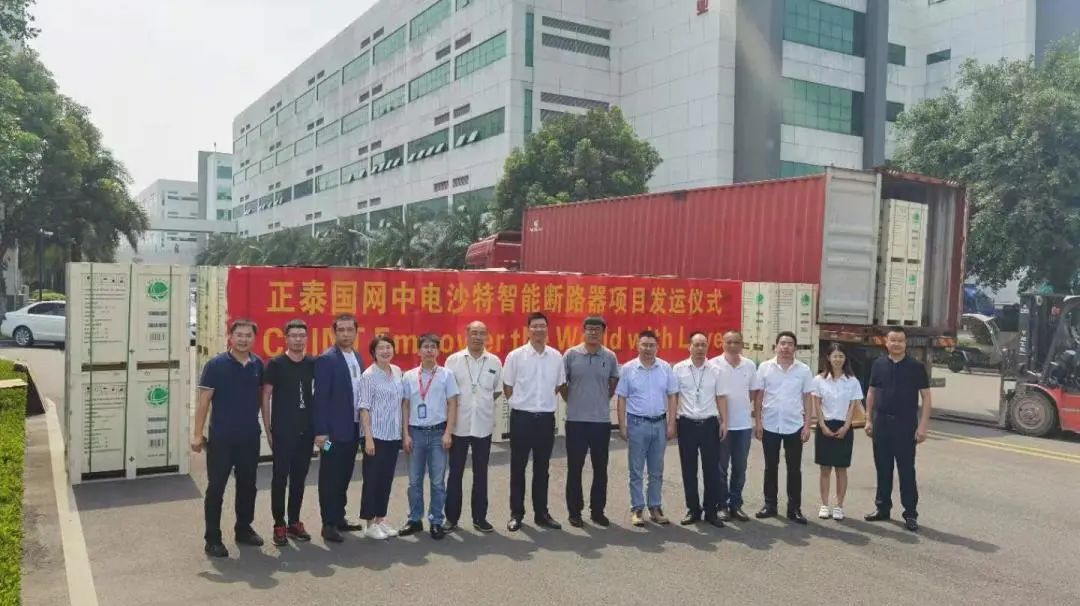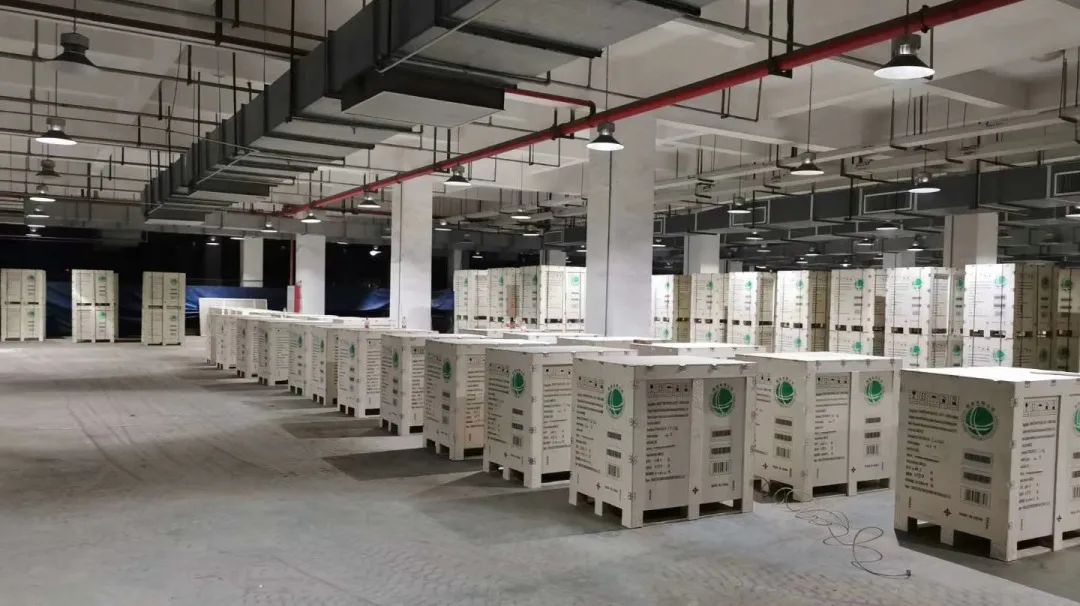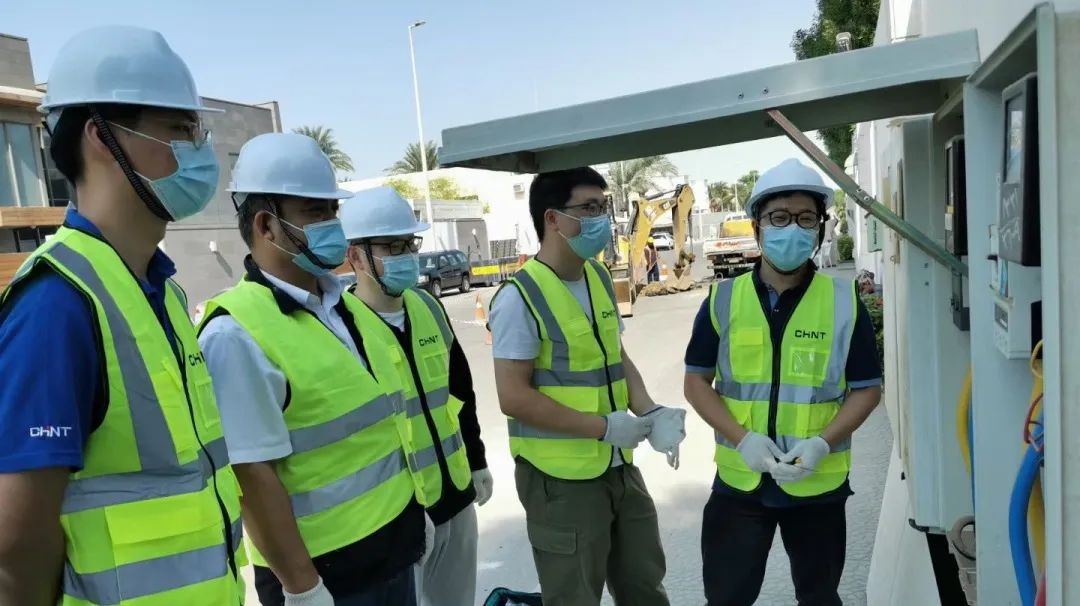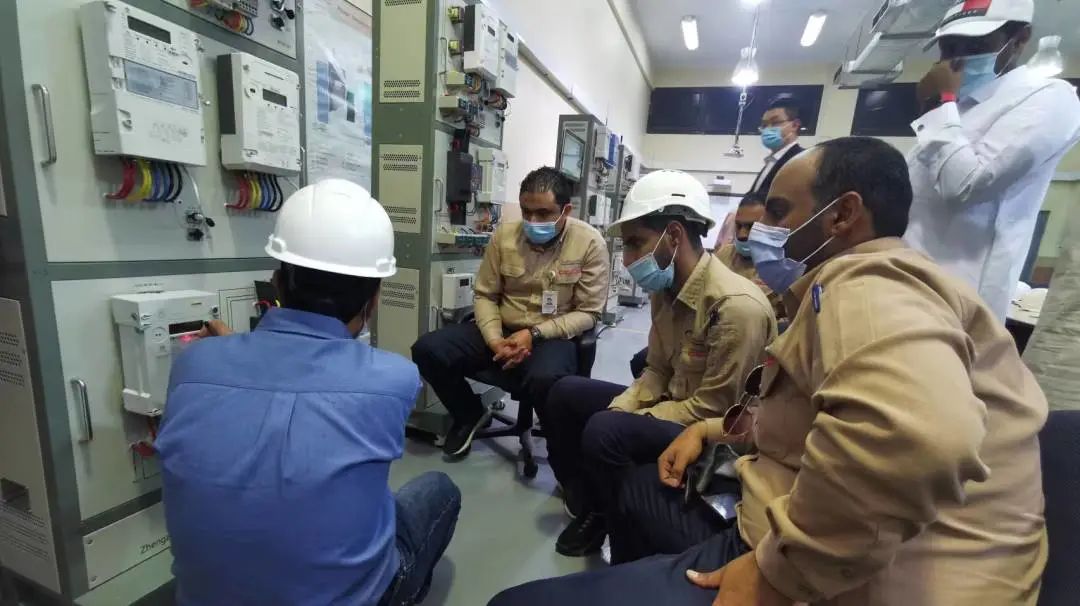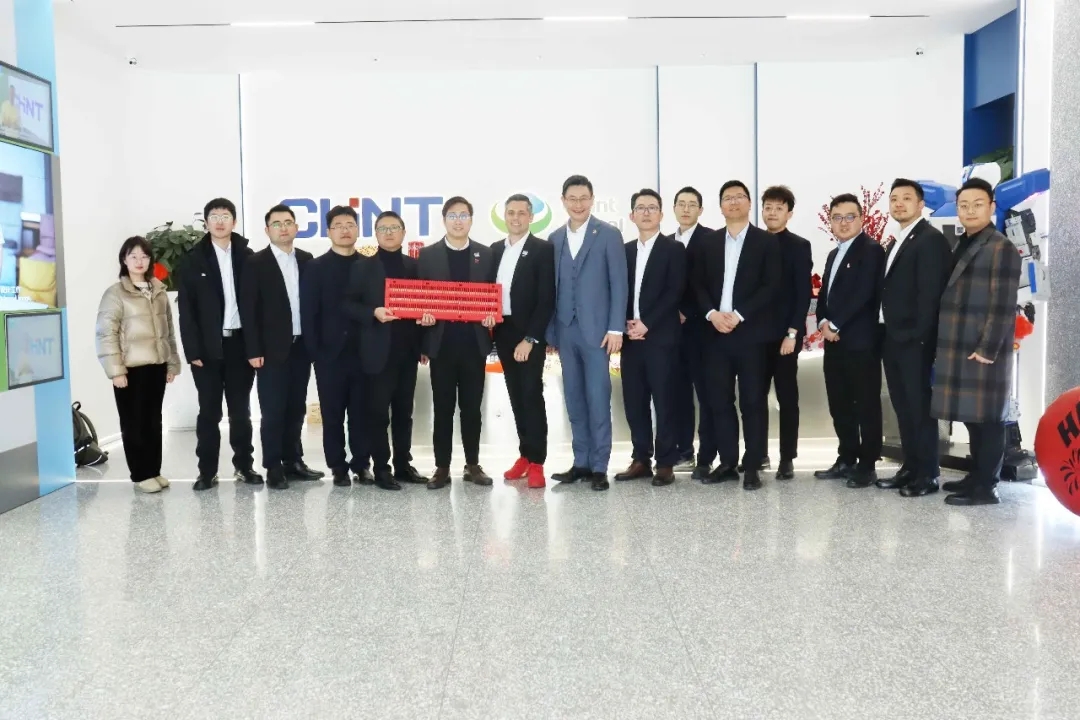According to CHINT’s global strategy, Saudi Arabia’s market is highly promising because of the its strong economic strength, continuously optimized business environment, strong investment in renewable energy and infrastructure, and huge market demand and potential. In order to diversify revenue sources and reduce dependence on oil, Saudi Arabia has launched “Vision 2030”, intending to transform and upgrade its economy through energy transformation.
The continuous expansion of cooperation areas and investment scale between China and Saudi Arabia has created a broad market for Chinese enterprises. With leading smart energy solutions, advanced power IoT technology, mature intelligent manufacturing capabilities, and rich experience in clean energy development, construction and operation, CHINT plays an active role in promoting Saudi Arabia to make achievements in low-carbon development, etc..
So, why has CHINT made breakthroughs in Saudi Arabia again and again? How to create a new engine of growth in the new situation? And what are the new plans for localization construction?
From "0" to "1" - perseverance leads to miracles
In 2020, under the effect of COVID-19, CHINT won the smart electric meter order (referred to as “ECB project”, “ECB” is the key component in the smart meter system) from Saudi Arabia, making a great step forward in the process of international market expansion.
Drops of water can’t outwear a stone within a short time. Through more than 10 years of localization, 5 years of independent network entry, 4 rounds of pre-qualification sample submission, more than 10 product upgrades in 3 years, and making the process from development to delivery be completed within 50 days… there is finally the leap from “0” To “1” by winning an international order of 100 million yuan.
In fact, to be a supplier of Centralized purchasing agencies such as the Saudi Electricity Company, it is necessary to pass the rigorous examination of the supplier entry examination system. In 2005, CHINT sold products such as distribution boxes, circuit breakers, and other products to the Saudi Electricity Company. Since then, it established contact with the company and gradually accumulated a reputation and performance.
In 2013, CHINT started a 5-year-long supplier network entry process, facing great challenges. After two years of pre-qualification and rigorous product tests, CHINT finally won the high recognition of Saudi Electricity Company and the Ministry of Housing and Construction for its excellent product performance and good brand image. It successfully entered the global supplier network of Saudi Arabia in 2018, which laid a foundation for the later successful bidding.
As Saudi Arabia’s “Vision 2030” accelerated, the country’s investment in the electric energy sector continued to expand. In 2020, CHINT finally got an opportunity and won a billion-dollar order.
It can be said that the ECB project promoted the close collaboration and efficient linkage of departments such as sales, production, research institute, Ministry of Industry and Information Technology, logistics, after-sales service, etc., overcame time and cultural differences, and overcame a series of technical problems.
It is not only an example of successful inter-departmental cooperation but also a reflection of CHINT’s strong industrialization system and industrialization capability. Finally, the project order amount increased from the initial 100 million yuan to nearly 300 million yuan.
When several hundred thousand of ECB with the “CHINT” logo are installed, tested, and put into operation in Saudi Arabia, the influence and popularity of the CHINT brand is enhanced. “The ECB project is the best example when introducing our company to new customers.
Industry insiders know that the most convincing evidence of product quality is the procurement of the Saudi Electricity Company, which undoubtedly strengthened the team’s confidence,” said Cao Guorui, head of CHINT (Saudi Arabia).
From Infrastructure to New Energy, New Engines of Growth Were Explored
The organic connection between the “Belt and Road” initiative and Saudi Arabia’s “Vision 2030” and the construction of the Sino-Saudi comprehensive strategic partnership are strongly promoting the extensive cooperation between enterprises of the two countries.
Affordable housing is one of the important livelihood projects of Saudi Arabia’s “Vision 2030”. With the advantages in quality and service, CHINT has established a good cooperative relationship with contractors such as China Metallurgical Group, Power Construction Corporation of China, etc. “Customers choose CHINT because we bring an effort and time-saving service experience”, said Cao Guorui.
Because Saudi Arabia has a large foreign population, many Chinese companies have to face language and communication problems during business development. Fortunately, CHINT (Saudi Arabia) team has employees who are proficient in Chinese, Arabic, and other languages.
They act as a “bridge” between the customer and the local design institute in the links such as electrical product design, assembly, tests, etc. to enhance the communication efficiency and thus ensure the smooth progress of the project.
In addition, CHINT’s advantages, such as reliable product quality, fast service response, etc., are a strong guarantee for the project’s progress. The Company has established a stable cooperative relationship with nearly 10 local dealers and leading control cabinet manufacturers, forming a distribution and service network covering major cities in Saudi Arabia.
In order to further expand the housing market,CHINT innovates its business model and forms a consortium with local manufacturers of fire protection, generators, air conditioners, pipes, etc. They share information and resources and supply products as a whole in the project, which effectively expands business channels.
In addition to the housing construction market, clean energy is also a key area expanded by CHINT.
Saudi Arabia has abundant light and a large desert area, which are favorable conditions for solar power generation. In order to increase the proportion of renewable energy generation, the local government is actively developing the solar photovoltaic industry.
“Not long ago, we got a 2MW hospital rooftop photovoltaic project, and other rooftop photovoltaic projects, for example, for commercial and industrial buildings, and school buildings are also under negotiation and follow-up.”
Cao Guorui said that the team has recruited professional staff to be responsible for the promotion and implementation of new business such as “new charging pile + energy storage”, PV charging station and PV street light, etc.
The NEOM is a new futuristic city planned by Saudi Arabia in 2017, with the main focus on clean energy and environmental protection. CHINT will provide NEOM with 45 sets of the box-type substations, of which 15 sets have been delivered at the end of July.
From Internationalization to Localization
Different overseas markets have different localization paths due to differences in economic level, industrial base, and resource endowment, but it is common that enterprises should accelerate the improvement of localization pivot points based on local macro policies and development strategies, accurately connect their own advantages and the development needs of local industries, and enhance global service capabilities, so as to achieve a win-win situation for all.
Therefore, the subsidiary in Saudi Arabia has planned ahead in terms of supply chain layout, hardware construction, industrial cooperation, and talents and teams to accelerate localization.
In the more than 10 years since it developed the market for export trade in Saudi Arabia, CHINT has entered a new stage of developing subsidiary companies. The team has grown continuously and has a modern office environment.
The establishment of the CHINT Dubai warehouse in September 2020 has increased the average logistics efficiency in 11 Middle East countries including Saudi Arabia by about 80%, providing customers with a more convenient and efficient logistics service experience.
Cao Guorui said, due to the overall weakness of Saudi Arabia’s local electrical industry, the management in CHINT has been thinking about how to bring scientific management concepts, advanced equipment, and technology to Saudi Arabia during the business promotion.
In recent years, CHINT has cooperated with local universities through various channels, helped Saudi Arabia cultivate professionals in the field of electricity, and promoted the progress of local industries by relying on resources and experience in technology research and development, talent training, etc..
Another key to localization is the localization of human resources. Saudi Arabia is a rich country, in which most citizens are unwilling to engage in the service and manual labor industry. Many workers are brought in from neighboring countries such as India and Pakistan. As a result, the sales, administrative, and personnel employees of the subsidiary in Saudi Arabia come from different countries.
According to the characteristics of the business partners, the subsidiary selects employees with the same or close geography, culture, and language to communicate and negotiate, which eliminates the communication barriers, draws customers closer, and helps the business to be carried out smoothly.
It is worth mentioning that, in order to move the manufacturing function forward, CHINT is actively preparing for a joint-venture factory in Saudi Arabia, which is expected to be completed next year according to the plan. This move is of great significance to drive Chinese technical standards and services to “go abroad”, deepen Sino-Saudi cooperation in electricity and energy, and promote international production capacity cooperation.
The person in charge of CHINT Global said China is the largest trading partner of Saudi Arabia. Saudi Arabia is the largest and most promising market in the Middle East. Being optimistic about the development prospects of the Middle East market, CHINT will continue to deeply plow the traditional power, infrastructure markets, etc., and vigorously explore the cooperation in comprehensive energy, intelligent manufacturing, digital transformation, etc, aiming to develop high-quality projects and help Saudi Arabia “Vision 2030” be steadily promoted.




